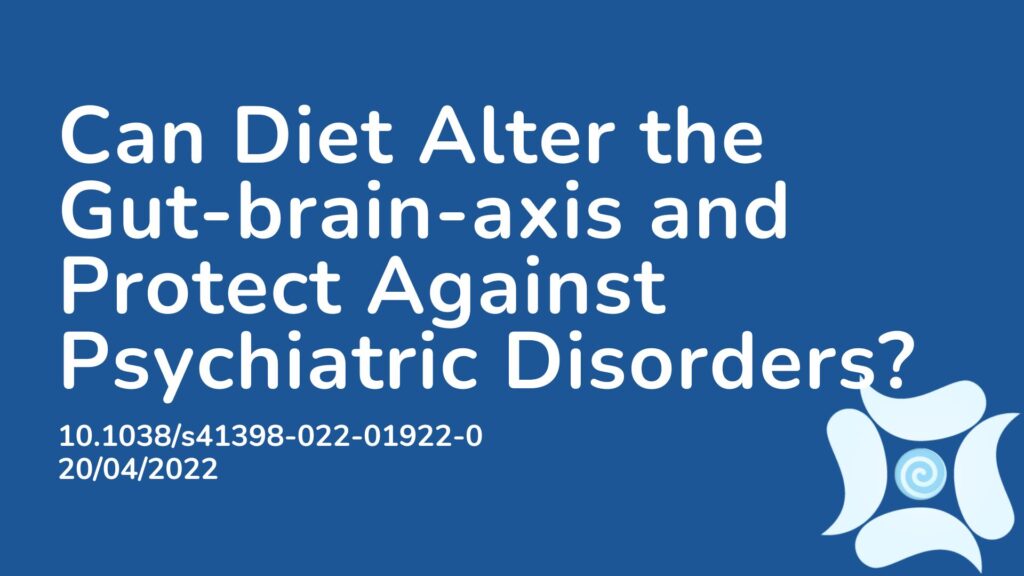Summary:
The gut-brain axis, also known as the brain-gut-microbiome is characterized by communication channels that exist between the gut and brain. Literature has shown that diet has the ability to influence these communication channels and change the function of the brain. This paper summarises the evidence that is currently available on this topic and examines the role of dietary habits in common mental disorders such as depression, autism spectrum disorder, Parkinson’s disease and epilepsy. Proper nutrition provides the ability to mediate inflammation which positively impacts brain health and a review of the current literature has shown that there is potential to improve the symptoms and health outcomes of psychiatric disorders with non-pharmacological therapies such as diet. The evidence is trending towards a largely plant-based diet to have these benefits which has clearly been shown to increase the abundance of diverse gut microbiome species.
Abstract:
There is emerging evidence that diet has a major modulatory influence on brain-gut-microbiome (BGM) interactions with important implications for brain health, and for several brain disorders. The BGM system is made up of neuroendocrine, neural, and immune communication channels which establish a network of bidirectional interactions between the brain, the gut and its microbiome. Diet not only plays a crucial role in shaping the gut microbiome, but it can modulate structure and function of the brain through these communication channels. In this review, we summarize the evidence available from preclinical and clinical studies on the influence of dietary habits and interventions on a selected group of psychiatric and neurologic disorders including depression, cognitive decline, Parkinson’s disease, autism spectrum disorder and epilepsy. We will particularly address the role of diet-induced microbiome changes which have been implicated in these effects, and some of which are shared between different brain disorders. While the majority of these findings have been demonstrated in preclinical and in cross-sectional, epidemiological studies, to date there is insufficient evidence from mechanistic human studies to make conclusions about causality between a specific diet and microbially mediated brain function. Many of the dietary benefits on microbiome and brain health have been attributed to anti-inflammatory effects mediated by the microbial metabolites of dietary fiber and polyphenols. The new attention given to dietary factors in brain disorders has the potential to improve treatment outcomes with currently available pharmacological and non-pharmacological therapies.
Article Publication Date: 20/04/2022
DOI: 10.1038/s41398-022-01922-0



